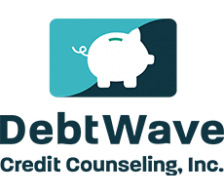Finding yourself in credit card debt during your working years, while still stressful and less than ideal, has its advantages. Namely, time. There is time to come up with a plan, find a way to reorganize your finances or make more money and return to a zero balance.
Wading through credit card debt during your senior years of life, when you’ve stopped working and your income is fixed, can be a little bit trickier. While there are still plenty of options and solutions to explore for seniors, it’s even more important to make sure what you decide to do won’t make the rest of your financial situation less stable.
Credit Card Debt Relief for Senior Citizens Who Need Help
Did you stop paying attention to your credit card balances when they began to balloon to an amount larger than you could handle?
In order to make a comprehensive plan of action, it’s important to know exactly where your balances currently sit and how those payments fit into your bigger financial picture.
Take stock of each of your cards, the minimum payment due, and the interest rate you are paying on each. If you are in good standing with the credit card company and you consistently make on-time payments, you might want to start by requesting a lower interest rate.
Use a calculator like this one from Bankrate to get a better understanding of how long it will take to pay off your debt given your regular payment amount, balance, and interest rate.
Can you increase your monthly payment by a small amount?
Understanding how the numbers work can help you determine what you can and cannot do given your financial situation.
According to the Consumer Financial Protection Bureau (CFPB), the top complaint filed by seniors has to do with harassment from debt collectors. Some even end up paying for a debt they don’t believe they owe, simply to make the phone calls stop.
The are restrictions in place to prevent debt collection harassment, so know your rights and, even more importantly, know what you do and do not owe.
Explore your Options
There are a few options you might have come across to address credit card debt on a fixed income. All of them come with their own set of pros and cons.
Reverse Mortgages
A reverse mortgage allows seniors 62 years and older to access a portion of their home equity through monthly payments from the bank if they own the home free and clear. The amount taken out does not need to be repaid in monthly installments until you move or pass away.
This could be a viable option if you plan on staying in your home, can maintain your home (there are maintenance requirements with reverse mortgages), and don’t have a concern about leaving the property to family members after you pass. You could still leave the home to heirs, but they would be responsible for paying the amount taken, plus interest.
Be aware, however, that you will be responsible for paying fees and closing costs. This might not be a viable option if you are already struggling with cash flow.
You can read more about reverse mortgages here.
Life Insurance Loans
If you have a permanent life insurance policy with a high cash value, you might have the option of borrowing a percentage of the value. This can be more beneficial than other forms of borrowing because no credit check is required, they come with low-interest rates, and there’s not a time frame in which the loan needs to be repaid.
On the flip side, however, if you planned on leaving this to your beneficiaries, this could hinder that plan. If the amount isn’t paid back before you pass away, the insurance company will take what is owed, plus interest. In addition, if you take out an amount that, with interest tacked on, exceeds the value, you could lose your death benefit entirely.
You can read more about life insurance loans here.
Bankruptcy
If you are struggling with the size of your debt and accumulating more debt each month just to live, it’s possible bankruptcy is one of your better options.
In order to file for bankruptcy, the courts will look at your income compared to the state median to determine if you can file for Chapter 7, which would eliminate many — or all — of your debts. Before going down this path, it’s important to understand which of your assets will and won’t be protected.
Social security, for instance, is protected, while the limits for home equity protection can vary.
You can read more about filing for bankruptcy here.
Still feeling overwhelmed and unsure of what to do?
Meet with a nonprofit credit counseling agency to take a bigger look at these options and others.
They will ensure you make a decision that best fits your unique situation and will place you on a better path than the one you are currently on.


